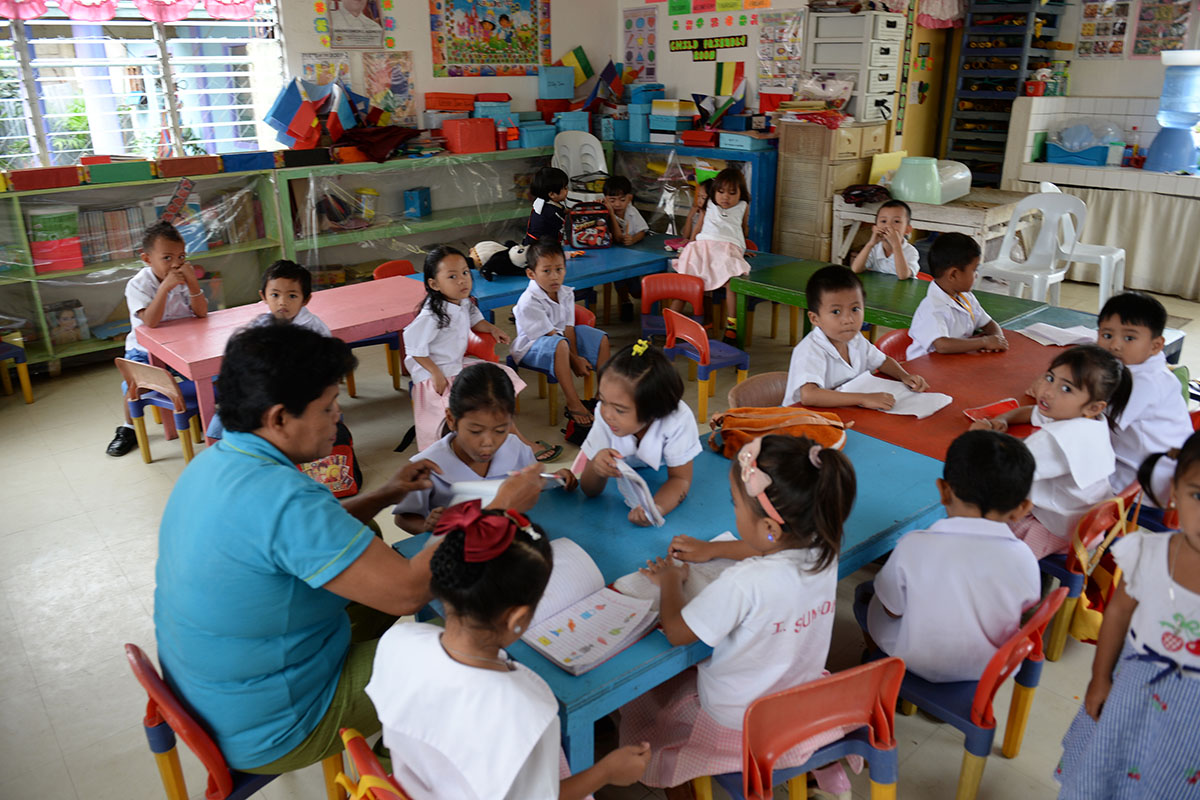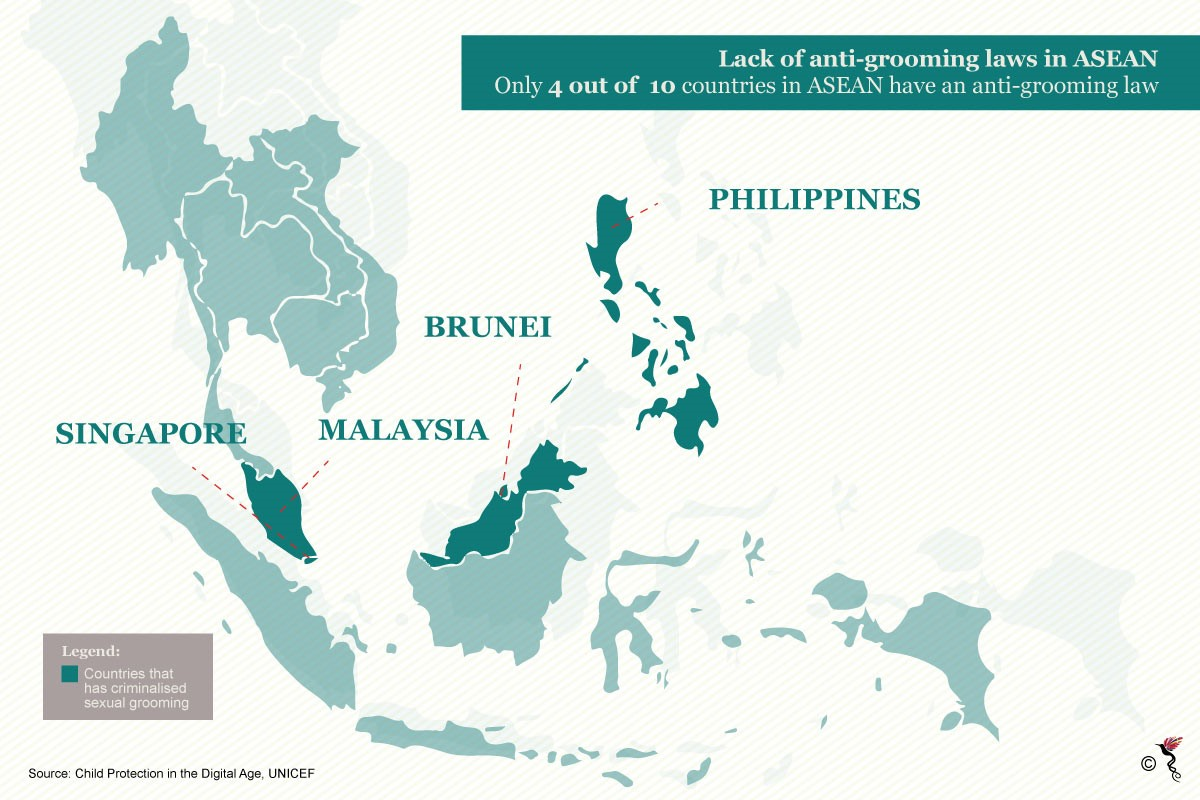In today’s day and age, the internet has become vital for reinforcing the capacities of a child’s education, self-expression and social development. With the rise of social media platforms, children are more exposed to inappropriate content and security risks. Furthermore, the risk of sharing personal details without understanding the consequences is increased, allowing unwanted situations such as online grooming to take place.
According to Stephen Blight, Regional Advisor – Child Protection of UNICEF East Asia and Pacific Regional Office in an e-mail correspondence with The ASEAN Post, “the term ‘online grooming’ refers to preparation by the perpetrator before they solicit sex from the child. This preparation can involve befriending the child, gaining their trust and lowering their inhibitions. Perpetrators may initiate conversations with several children at one online, and gauge their reactions before deciding which to pursue.”
The “Mapping Online Child Safety in Asia-Pacific” report by the Internet Society – APAC Bureau of Singapore, also stated that children in Southeast Asia have wider access to both computers and smart devices today which enables them to connect to the internet. In Indonesia, roughly 60 percent of children access the internet through mobile devices. In the Philippines, 50 percent of its 44 million internet users are children aged 17 years old and below. In Thailand, 58 percent of children aged six to 14 years are using the internet. Also, a survey entitled “CyberSafe” by Stairway Foundation and the Philippines’ Department of Education found that 50 percent of the children polled lacked awareness of the risks and dangers that they face on the internet.

In this picture taken on January 21, 2014, children listen to their teacher at a day care center, next to the now abandoned house (back) that used to streamed live sex acts of children to paedophiles watching online overseas, in the village of Ibabao in Cordova town, Cebu provnce in central Philippines. (AFP Photo/Ted Aljibe)
Anti-grooming laws in Southeast Asia
With the growing online community in the region, it is an unfortunate fact that only four out of the 10 Southeast Asian nations have an anti-grooming law in place. According to the “Child Online Safety” study by UNICEF, the online risks that children face is generally not well-integrated into child protection systems and responses. The lack of research on cyber safety for children in Asia-Pacific adds to the severity of the problem.

Countries in Southeast Asia that have anti-grooming law. Source: UNICEF.
All 10 countries in the region need to establish legal measures to protect children from this demeaning act. The only way to curb online grooming of children is to make it a crime in all countries. With the right laws in place, law enforcement agencies will have the power they need to investigate online sexual grooming cases, pursue the offenders and protect victims.
Noting the increase in online sexual grooming offences, the regional bloc needs to include preventive measures against online violence as a priority action in its Elimination of Violence against Children (EVAC) partnership – to encourage its continued commitment to develop and implement comprehensive strategies to better protect children.
Blight too suggests that an effective legislation is in place in all ASEAN countries. “Because of the cross-border nature of online crimes, it is necessary to ensure that all countries in the region have equally strong laws.” He adds that the governments of these countries should “collaborate with Interpol to gain access to their image database which can help identify and rescue child victims of sexual exploitation online.”
How can the society help?
Child sexual grooming should be tackled in a holistic manner with the cooperation of everyone in the society, and not just be left to the government or lawmakers. Parents and teachers must take proactive steps to educate their children on the dangers online, how to avoid these dangers and expose them to sex education. Without the right education about how to be safe online and the relevant sexual education, this issue will remain unresolved.
Blight concluded that the society should also “protect and promote the victim’s rights to recovery and remedy for abuse by providing end to end support; training and funding an effective child protection workforce; providing a child reporting helpline; and ensuring access to remedies for child victims.”
Recommended stories: